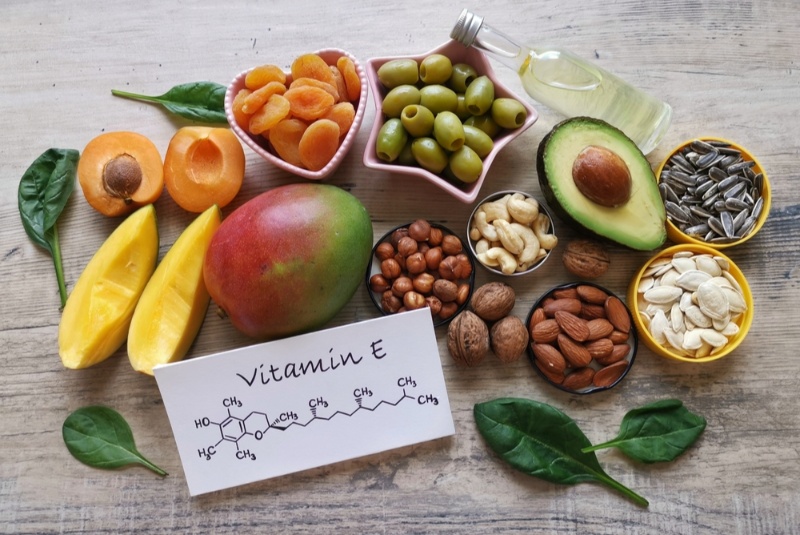As the sun brightens and temperatures rise, summer brings the opportunity for more time spent outdoors enjoying the warm weather. However, it’s also a crucial time to take care of your skin and overall health through proper nutrition. This guide offers comprehensive tips on what to eat to enhance your skin’s natural glow, boost your health, and ensure you look and feel great all summer long.
Hydrate Consistently
Staying hydrated is fundamental in maintaining a healthy summer glow. Water is essential not only for hydration but also for maintaining skin elasticity and preventing dryness. Aim to drink at least eight glasses of water daily. You can also increase your hydration through water-rich foods like cucumbers, watermelon, strawberries, and celery. These foods help maintain your fluid balance and can keep your skin looking fresh and dewy. Additionally, infused waters with natural flavors from fruits or herbs can make increasing your daily water intake more enjoyable and refreshing during the hot summer days.
Incorporate Healthy Fats in Your Diet
Healthy fats are vital for skin health, providing essential fatty acids that act as natural moisturizers, improving your skin’s elasticity and keeping it supple. Include sources of omega-3 and omega-6 fatty acids in your diet, such as salmon, flaxseeds, walnuts, and avocados. These fats can help reduce inflammation in the body, including the skin, which is particularly beneficial during the summer when your skin may be more prone to inflammation due to sun exposure. Regular intake of these healthy fats can enhance the skin’s barrier, protecting against environmental factors and promoting a radiant complexion.
Prioritize Vitamin C-Rich Foods
Vitamin C is a powerhouse when it comes to skin health. It helps produce collagen, a protein that keeps the skin firm and strong. A diet high in vitamin C can help repair and regenerate skin, reduce the appearance of wrinkles, and improve overall skin texture. Include plenty of fruits and vegetables such as oranges, kiwi, bell peppers, strawberries, broccoli, and Brussels sprouts, which are all high in vitamin C. Consistent consumption of these foods ensures that your body gets enough vitamin C to support collagen production and fend off the signs of aging.
Get Enough Vitamin E
Vitamin E is another essential nutrient for skin health, known for its antioxidant properties that help fight off skin damage caused by free radicals and environmental exposure like UV rays and pollution. Foods rich in Vitamin E such as almonds, sunflower seeds, spinach, and avocados should be regularly included in your meals. They not only help protect the skin but also aid in skin repair. Daily consumption of these foods enhances the skin’s natural defenses against sun exposure and pollution, contributing to a healthier and more resilient complexion.

Zinc and Skin Protection
Zinc plays a crucial role in protecting the skin and repairing damage. It helps in maintaining the integrity of skin tissue and assists in the healing process. Foods like pumpkin seeds, lentils, chickpeas, and lean meats are excellent sources of zinc. Consuming zinc-rich foods can help protect against UV damage and improve your skin’s ability to heal, which is especially important during the summer months when skin is more frequently exposed to sunlight and prone to damage.
Enjoy Antioxidant-Rich Berries
Berries are loaded with antioxidants, which are vital for maintaining healthy skin during the summer. Blueberries, strawberries, raspberries, and blackberries can help prevent skin damage and repair skin that has been exposed to the sun. These fruits are not only delicious but also versatile, making them easy to incorporate into various meals, from breakfast cereals to smoothies and desserts. Their high antioxidant content helps neutralize harmful free radicals, promoting skin health and preventing premature aging.
Beta-Carotene and Skin Health
Beta-carotene is known for its ability to protect skin and improve its health. It converts to vitamin A in the body, which is essential for repairing skin tissue. Foods rich in beta-carotene include carrots, sweet potatoes, spinach, and kale. Regular consumption of these can help maintain skin health and prevent sun damage. Beta-carotene acts as a natural sunblock, reducing the impact of UV light on the skin, which can lead to sunburn and long-term damage.
Limit Sugars and Processed Foods
Reducing your intake of sugars and processed foods is beneficial for your skin, especially in the summer. These foods can trigger inflammation and lead to breakouts, as well as accelerate aging by damaging collagen and elastin. Focus on eating whole foods and maintaining a diet rich in fruits, vegetables, lean proteins, and whole grains to keep your skin in top condition. By minimizing processed foods and high sugar intake, you can avoid common skin issues and maintain a clearer, more vibrant complexion.
Plan Balanced Meals
Planning balanced meals that include a variety of nutrients is key to maintaining healthy skin during the summer. Ensure that each meal contains a good balance of carbohydrates, proteins, and fats, along with vitamins and minerals essential for skin health. This balance not only supports your skin but also improves your overall health, giving you the energy to enjoy all your summer activities. Including a diverse range of foods in your diet ensures that your skin receives all the nutrients it needs to remain healthy and glowing throughout the season.
By following these nutritional tips, you can ensure your skin remains healthy, resilient, and glowing throughout the summer. Proper nutrition is an effective way to naturally enhance your appearance and protect your health, making every summer outing more enjoyable.


